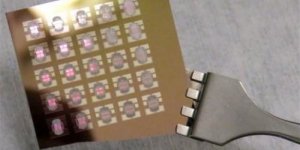| News / Tech News |
Computer that Reads Body Language
Researchers at Carnegie Mellon University's Robotics Institute have enabled a computer to understand the body poses and movements of multiple people from video in real time -- including, for the first time, the pose of each individual's fingers.

Computer that reads body language. ![]()
This new method was developed with the help of the Panoptic Studio, a two-story dome embedded with 500 video cameras. The insights gained from experiments in that facility now make it possible to detect the pose of a group of people using a single camera and a laptop computer.
Yaser Sheikh, associate professor of robotics, said these methods for tracking 2-D human form and motion open up new ways for people and machines to interact with each other, and for people to use machines to better understand the world around them.
The ability to recognize hand poses, for instance, will make it possible for people to interact with computers in new and more natural ways, such as communicating with computers simply by pointing at things.
Detecting the nuances of nonverbal communication between individuals will allow robots to serve in social spaces, allowing robots to perceive what people around them are doing, what moods they are in and whether they can be interrupted.
A self-driving car could get an early warning that a pedestrian is about to step into the street by monitoring body language.
Enabling machines to understand human behavior also could enable new approaches to behavioral diagnosis and rehabilitation for conditions such as autism, dyslexia and depression. (Tasnim News Agency)
YOU MAY ALSO LIKE





